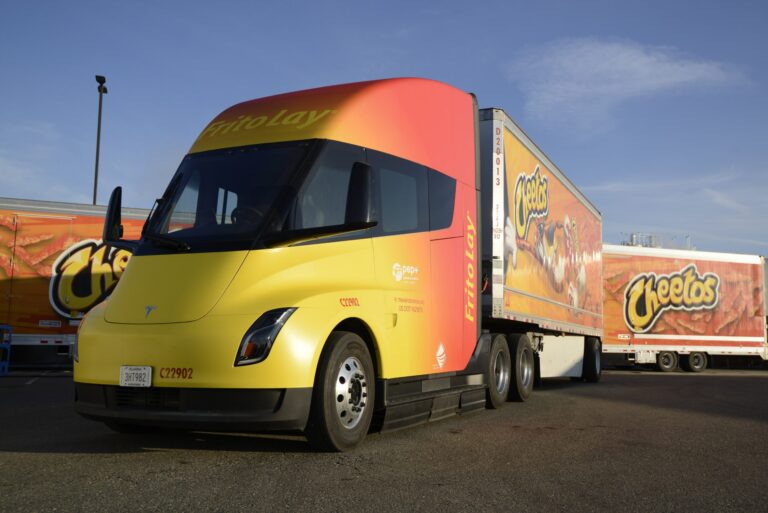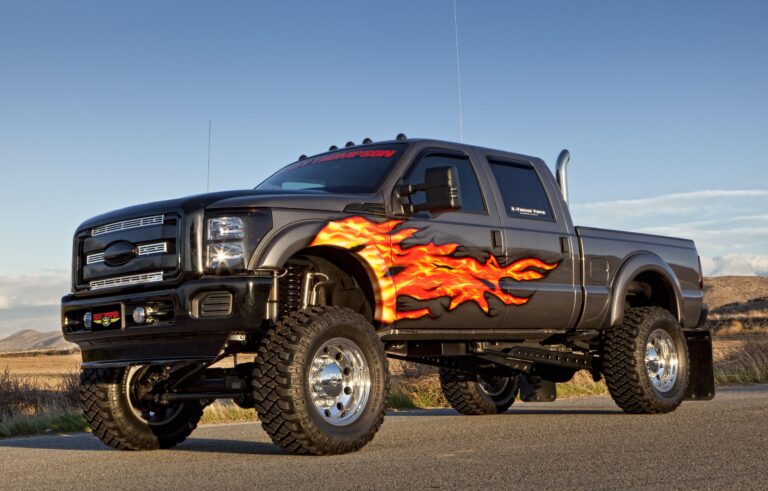Five Ton Trucks For Sale: Your Comprehensive Guide to Heavy-Duty Utility
Five Ton Trucks For Sale: Your Comprehensive Guide to Heavy-Duty Utility cars.truckstrend.com
In the vast landscape of commercial vehicles, the "five-ton truck" occupies a crucial niche. Often misunderstood in its exact definition, this category of trucks typically refers to vehicles designed to carry a substantial payload, bridging the gap between light-duty pickups and heavy-haul semi-trucks. Whether you’re a small business owner, a fleet manager, or an independent contractor, understanding the world of five-ton trucks for sale is essential for making an informed investment that can significantly enhance your operational efficiency and profitability.
This comprehensive guide will delve into what defines these workhorses, their diverse applications, where to find them, and critical considerations to ensure you select the perfect truck for your specific needs. From navigating the market to understanding the intricacies of ownership, we’ll equip you with the knowledge to confidently explore the "five ton trucks for sale" market.
Five Ton Trucks For Sale: Your Comprehensive Guide to Heavy-Duty Utility
What Defines a "Five-Ton Truck"? Unpacking the Terminology
The term "five-ton truck" can sometimes be a loose descriptor, often referring to a truck’s payload capacity rather than its Gross Vehicle Weight Rating (GVWR). Legally, trucks are classified by their GVWR, which is the maximum operating weight of the truck as specified by the manufacturer, including the vehicle’s chassis, body, engine, fuel, accessories, driver, passengers, and cargo.
For a truck to effectively carry a five-ton (approximately 10,000 lbs or 4,536 kg) payload, its GVWR would typically fall into:
- Class 5: GVWR ranging from 16,001 to 19,500 lbs (7,258 to 8,845 kg).
- Class 6: GVWR ranging from 19,501 to 26,000 lbs (8,846 to 11,793 kg).
Many trucks marketed as "five-ton" payload capacity trucks are often Class 6 vehicles, offering ample capacity for a 10,000 lb load while staying below the 26,001 lb threshold that typically requires a Commercial Driver’s License (CDL) for the driver in the United States, depending on state regulations and specific applications. This makes them highly attractive for businesses that need significant hauling power without the additional regulatory burden of CDL requirements for their drivers.

These trucks are typically built on robust chassis, featuring powerful engines (often diesel for superior torque and fuel efficiency under load), heavy-duty axles, and strong suspension systems designed to handle consistent heavy loads. They are generally available as cab-and-chassis units, allowing for a wide variety of upfits.
Why Choose a Five-Ton Truck? Key Benefits for Your Operations
The appeal of a five-ton truck lies in its unique balance of power, capacity, and maneuverability. Here are the primary benefits:
- Optimal Payload Capacity: For many businesses, a five-ton payload is the sweet spot. It’s significantly more than what a typical light-duty pickup or van can handle, making it suitable for larger jobs, yet often less than what would necessitate a larger, more expensive, and less maneuverable Class 7 or 8 truck.
- Versatility and Adaptability: The cab-and-chassis design allows for an incredible array of custom body types. This adaptability makes them suitable for a vast range of industries and specific job requirements.
- Maneuverability: While substantial, a five-ton truck is generally easier to navigate in urban environments, construction sites, and tighter spaces compared to full-sized semi-trucks. This reduces driver fatigue and improves delivery times.
- Cost-Effectiveness: For the volume of work they can accomplish, five-ton trucks often offer a lower total cost of ownership than larger trucks. They can be more fuel-efficient for their given tasks and typically have lower insurance and maintenance costs than their heavier counterparts.
- Durability and Longevity: Built for heavy-duty use, these trucks are designed to withstand rigorous daily demands, offering a long service life with proper maintenance.

Applications and Industries Benefiting from Five-Ton Trucks
The adaptability of five-ton trucks means they are indispensable across numerous sectors:
- Construction: Commonly seen as dump trucks for hauling aggregates, soil, or debris; flatbeds for transporting equipment, lumber, or palettes; or service trucks carrying tools and supplies.
- Landscaping: Ideal for moving large quantities of mulch, topsoil, gravel, trees, or transporting mini-excavators and skid steers.
- Delivery and Logistics: Perfect for furniture delivery, appliance haulage, large package distribution, and last-mile delivery of goods that are too large for standard vans.
- Moving Companies: Box trucks with five-ton capacity are a staple for residential and commercial moves, offering ample space and weight capacity.
- Municipal Services: Used by public works departments for street maintenance, utility repair (bucket trucks, digger derricks), waste management, and snow removal.
- Agriculture: Farmers utilize them for transporting feed, produce, livestock, and equipment around farms and to markets.
- Specialty Services: From mobile workshops and auto-towing to specialized cleaning services and emergency response, the customizability of a five-ton chassis makes it ideal.
Navigating the Market: Where to Find Five-Ton Trucks For Sale
The market for five-ton trucks is robust, offering both new and used options. Knowing where to look can significantly streamline your search:
- New Truck Dealerships: Authorized dealerships for brands like Ford (F-550, F-650), Ram (5500), Chevrolet/GMC (4500HD, 5500HD), Isuzu, Hino, Fuso, and International are the primary source for brand-new trucks. They offer customization, financing, and warranty support.
- Used Truck Dealerships: Many dealerships specialize in pre-owned commercial vehicles, offering a wide range of makes and models, often with various body types already installed. They typically inspect and service vehicles before sale.
- Online Marketplaces:
- Dedicated Commercial Vehicle Sites: Websites like TruckPaper.com, CommercialTruckTrader.com, and MyLittleSalesman.com are excellent resources for both new and used trucks from dealers and private sellers nationwide.
- General Classifieds: eBay Motors, Craigslist, and Facebook Marketplace can yield local deals from private sellers, though these often require more diligence.
- Auctions: Public and government surplus auctions (e.g., GovDeals.com, IronPlanet.com) can be sources for great deals, but vehicles are often sold "as-is," making thorough inspection critical.
- Direct from Owners/Fleet Sales: Sometimes, companies upgrading their fleets will sell their older trucks directly. Networking within your industry can uncover these opportunities.
Key Considerations When Buying a Five-Ton Truck
Purchasing a five-ton truck is a significant investment. Careful consideration of several factors will ensure you make the right choice:
-
Budget:
- New vs. Used: New trucks offer warranties, the latest technology, and customization, but come at a higher initial cost. Used trucks are more budget-friendly but require more scrutiny regarding condition and history.
- Financing: Explore loan options from banks, credit unions, and dealership financing services. Understand interest rates, terms, and down payment requirements.
- Total Cost of Ownership: Factor in not just the purchase price, but also insurance, registration, fuel, maintenance, repairs, and potential depreciation.
-
Intended Use and Body Type: This is paramount.
- Box Truck: Enclosed cargo, ideal for moving, delivery, or secure storage.
- Dump Truck: Hauling loose materials like dirt, gravel, or debris.
- Flatbed Truck: Transporting large, awkward items, machinery, or palletized goods.
- Utility/Service Truck: Equipped with compartments, cranes, or specialized tools for field service.
- Cab & Chassis: Offers maximum flexibility to add a custom body.
-
Condition (for Used Trucks):
- Engine & Transmission: Check for leaks, strange noises, smoke, and smooth operation. A professional pre-purchase inspection is highly recommended.
- Brakes: Ensure responsiveness and no excessive wear.
- Tires: Inspect tread depth and even wear.
- Frame & Suspension: Look for cracks, bends, or signs of heavy stress/overloading.
- Rust: Pay close attention to the frame, cab, and bed, especially in regions with harsh winters.
- Fluid Levels & Leaks: Indicates maintenance neglect or potential issues.
- Service Records: Crucial for understanding the truck’s maintenance history and any past major repairs.
-
Engine Type: Diesel vs. Gas:
- Diesel: Offers superior torque, better fuel efficiency under heavy loads, longer lifespan, and often higher resale value. Initial cost and maintenance can be higher.
- Gas: Lower initial cost, quieter operation, and easier cold starts. Fuel economy and longevity under heavy, continuous use may be less than diesel.
-
Transmission:
- Automatic: Easier to drive, especially in stop-and-go traffic.
- Manual: Offers more control, can be more fuel-efficient for experienced drivers, and often more durable.
-
Mileage/Hours (for Used Trucks): High mileage isn’t necessarily a deal-breaker if the truck has been well-maintained. Look for trucks with consistent maintenance records regardless of mileage. Engine hours can be more indicative of wear for trucks that idle frequently.
-
State Regulations and DOT Compliance: Understand the specific GVWR limits, inspection requirements, and potential CDL requirements in your state or for your specific application. Over-the-road use may involve additional DOT regulations.
-
Aftermarket Support & Parts Availability: Choose a brand with readily available parts and a strong network of service centers.
Tips for a Successful Purchase
- Define Your Needs Clearly: Before you start looking, make a list of exactly what you need the truck to do, including payload capacity, desired body type, and daily operational requirements.
- Set a Realistic Budget: Don’t just consider the purchase price. Factor in all associated costs.
- Thorough Inspection: For used trucks, never skip a pre-purchase inspection by an independent, certified mechanic specializing in commercial vehicles.
- Test Drive: Load the truck if possible during the test drive to get a feel for its performance under stress. Drive on various terrains.
- Check VIN History Report: Services like CarFax or AutoCheck for commercial vehicles can provide valuable insights into accidents, salvage titles, and odometer discrepancies.
- Negotiate: Always be prepared to negotiate the price, especially for used trucks.
- Understand Warranty/As-Is: Know what kind of warranty (if any) comes with the truck, particularly for used vehicles often sold "as-is."
Potential Challenges and Solutions
- Finding the "Right" Truck: The specific configuration you need might not be immediately available. Solution: Be patient, broaden your search geographically, and consider a cab-and-chassis unit for custom upfitting.
- Hidden Problems (Used Trucks): Mechanical issues not apparent during a quick look. Solution: Mandate a professional pre-purchase inspection and request full service records.
- Financing Difficulties: Securing a loan for a commercial vehicle can be different from a personal car. Solution: Get pre-approved for financing, explore different lenders, and consider commercial vehicle leasing options.
- Regulatory Compliance: Navigating DOT rules, weight limits, and licensing can be complex. Solution: Consult with local DOT offices or a commercial vehicle legal expert to ensure full compliance.
- High Operating Costs: Fuel, insurance, and maintenance can add up quickly. Solution: Budget realistically, maintain the truck diligently to prevent major repairs, and optimize routes for fuel efficiency.
Price Table: Estimated Five-Ton Truck Costs (Approximate Ranges)
Please note: These are highly generalized estimates and actual prices can vary dramatically based on manufacturer, specific model, engine type, transmission, mileage, condition, features, geographic location, and market demand. Upfitting costs (e.g., adding a dump bed, box, or crane) are separate from the chassis price.
| Condition | Truck Type (Chassis + Body) | Estimated Price Range (USD) | Key Factors Influencing Price |
|---|---|---|---|
| New | Cab & Chassis | $55,000 – $90,000+ | Brand, engine size, drivetrain (2WD/4WD), trim level. |
| New | Box Truck (16-26 ft) | $70,000 – $110,000+ | Chassis cost + box size, material, liftgate, refrigeration. |
| New | Dump Truck | $80,000 – $130,000+ | Chassis cost + dump body capacity, hydraulics, material. |
| New | Flatbed Truck | $65,000 – $100,000+ | Chassis cost + bed length, material, headache rack. |
| Used | Excellent Condition | $40,000 – $75,000 | Low mileage/hours, recent model year, full service history. |
| Used | Good Condition | $25,000 – $50,000 | Moderate mileage/hours, well-maintained, minor wear & tear. |
| Used | Fair Condition | $15,000 – $30,000 | Higher mileage/hours, older model, may require some repairs. |
| Used | Salvage/Parts | $5,000 – $15,000 | Significant damage, non-running, or very high mileage. |
Frequently Asked Questions (FAQ) About Five-Ton Trucks
Q1: What exactly does "five-ton truck" mean in terms of weight?
A1: While often used to describe a truck’s payload capacity of approximately 10,000 pounds (5 tons), legally, trucks are classified by their Gross Vehicle Weight Rating (GVWR). A five-ton payload truck usually falls into Class 5 (16,001-19,500 lbs GVWR) or Class 6 (19,501-26,000 lbs GVWR).
Q2: Do I need a CDL (Commercial Driver’s License) to drive a five-ton truck?
A2: In the U.S., a CDL is generally required for vehicles with a GVWR of 26,001 lbs or more. Since most "five-ton payload" trucks have a GVWR under 26,001 lbs, a standard Class D (non-commercial) driver’s license is often sufficient. However, state-specific regulations, certain endorsements (e.g., for air brakes), or the type of cargo (e.g., hazardous materials) can alter this requirement. Always check local DOT regulations.
Q3: What’s the difference between GVWR and payload capacity?
A3: GVWR (Gross Vehicle Weight Rating) is the maximum total operating weight of the truck, including the vehicle itself, its fuel, passengers, and cargo. Payload capacity is the maximum weight of cargo and passengers a truck can carry in addition to its own weight. You calculate payload by subtracting the truck’s curb weight from its GVWR.
Q4: Is it better to buy a gas or diesel five-ton truck?
A4: Diesel engines generally offer more torque for heavy hauling, better fuel economy under load, and a longer lifespan, making them ideal for continuous, heavy-duty work. Gas engines have lower upfront costs, are quieter, and simpler to maintain, suitable for lighter, less frequent hauling or stop-and-go urban driving.
Q5: What should I look for when inspecting a used five-ton truck?
A5: Key areas include the engine (leaks, noises, smoke), transmission (smooth shifting), brakes, tires, frame (cracks, bends, rust), suspension components, and fluid levels. Always request service records and consider a pre-purchase inspection by a qualified mechanic.
Q6: How often should a five-ton truck be serviced?
A6: Service intervals depend on the manufacturer, model, engine type, and usage. Generally, oil changes are every 5,000-15,000 miles for diesel and 3,000-7,500 miles for gas. More comprehensive inspections and preventative maintenance should occur every 6-12 months or per manufacturer recommendations, especially for commercial use.
Q7: Can I convert a five-ton box truck into a dump truck?
A7: While theoretically possible, converting a box truck chassis to a dump truck is a major undertaking. It requires significant structural modifications, installation of a hydraulic system, and a new dump body. It’s often more cost-effective and safer to purchase a truck designed as a dump truck or a cab-and-chassis unit to which a dump body can be added.
Q8: What are typical insurance costs for a five-ton truck?
A8: Insurance costs vary widely based on the truck’s value, intended use (e.g., local delivery vs. long-haul, type of cargo), driving record of the operators, location, and coverage limits. Commercial truck insurance can range from a few thousand to over ten thousand dollars annually. It’s best to get multiple quotes from commercial vehicle insurance providers.
Conclusion
Five-ton trucks represent a cornerstone of efficiency for countless businesses, offering a versatile and powerful solution for diverse hauling and operational needs. From construction sites to urban delivery routes, their robust design and adaptable nature make them an invaluable asset.
Navigating the "five ton trucks for sale" market requires diligence, a clear understanding of your specific requirements, and a keen eye for detail, especially when considering used vehicles. By carefully evaluating your budget, intended use, and the truck’s condition, and by leveraging the resources available, you can confidently acquire a vehicle that not only meets your current demands but also serves as a reliable workhorse for years to come. Invest wisely, and your five-ton truck will become a powerful engine for your business’s success.





